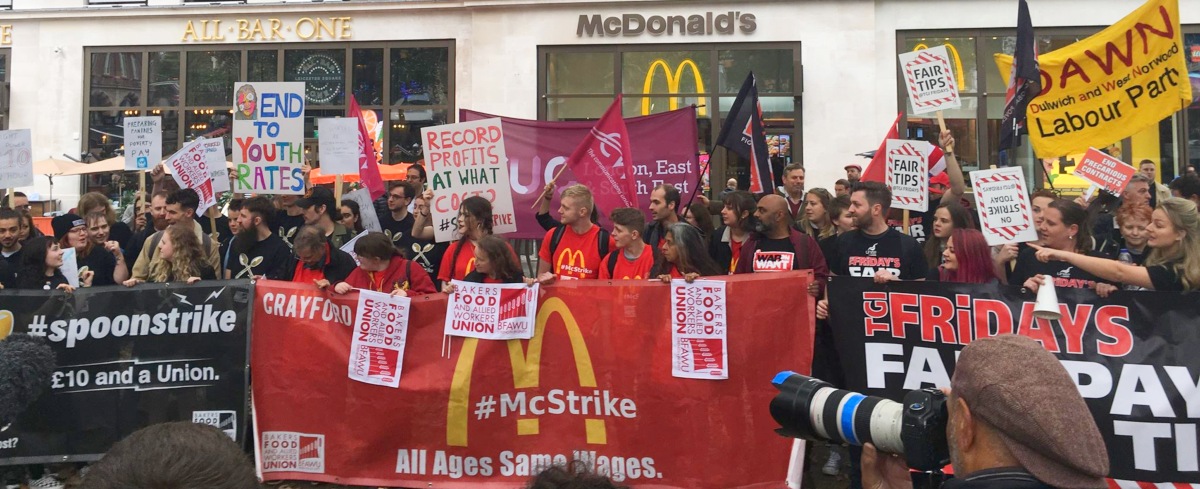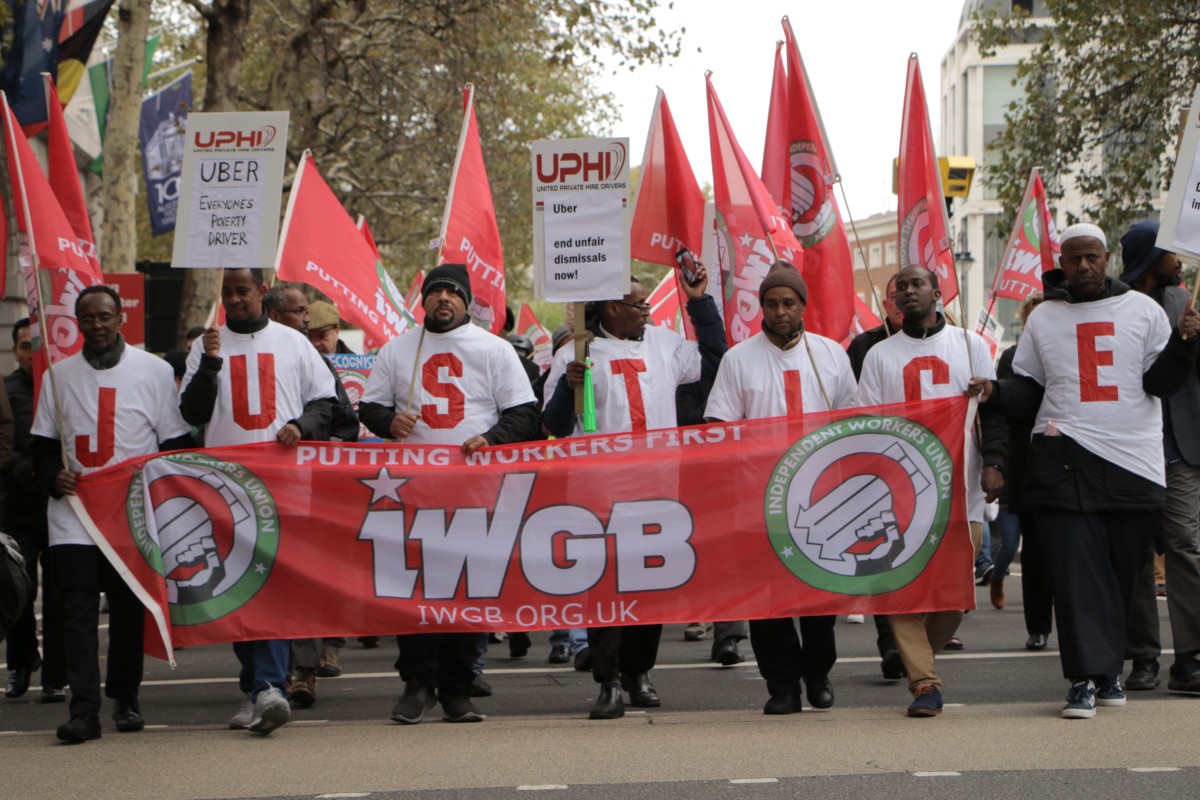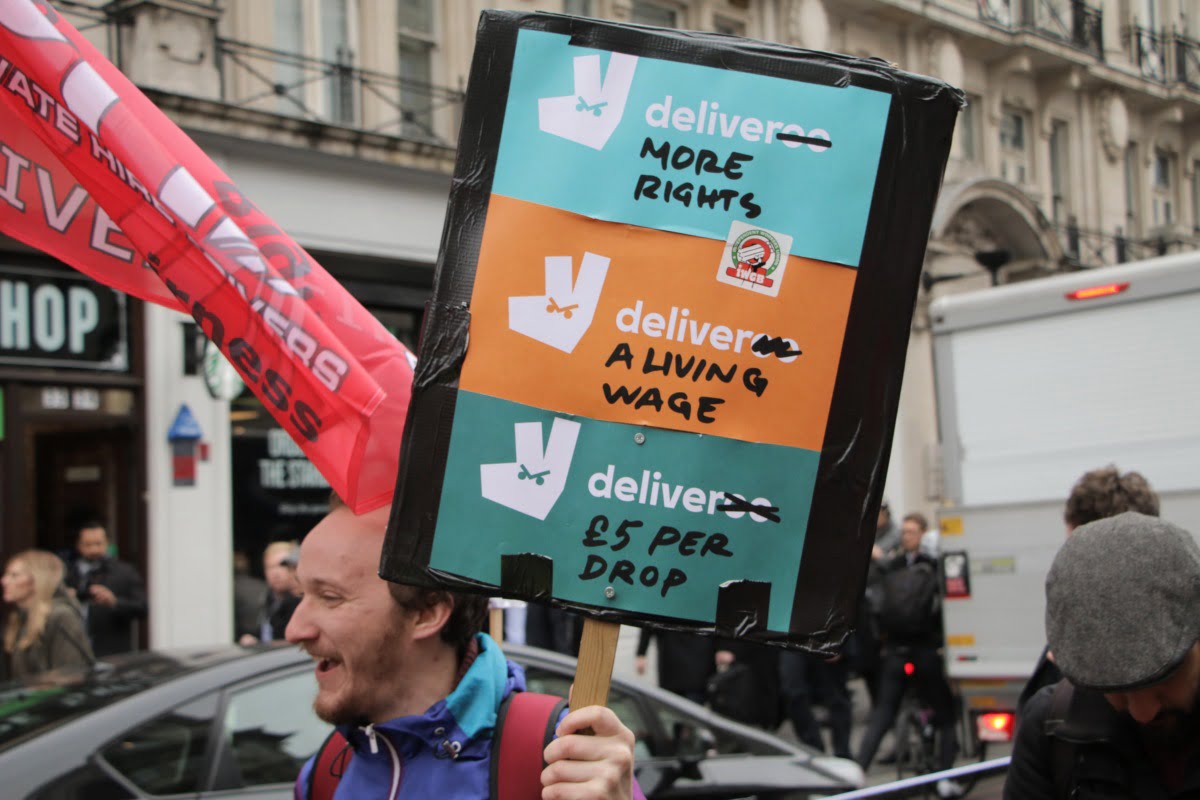Under pressure from Labour’s bold proposals, the Tories are promising reforms to help those facing insecure conditions. But workers need to trust in their own organisation and action to win real improvements.
‘Weak and wobbly’ Theresa May is desperately looking for support to bolster her moribund government. This explains the Prime Minister’s recent announcement that the Tories will bring in a set of meagre reforms to ameliorate the sufferings faced by workers in the gig economy.
The proposals come from a report entitled A Review of Employment Practices in the Modern Economy, set out by a former policy advisor to Tony Blair, Matthew Taylor.
The suggested new legislation for workers includes:
- The right to request a temporary or a fixed hours contract.
- Sufficient notice periods and compensation for cancelled shifts.
- Self-employed status to become (in some cases) worker status, bringing tax and employment laws into alignment.
- Naming and shaming employers who fail to pay out in employment tribunals (apparently one third of successful claimants never receive any payout, and less than half are paid the full amount!).
- And finally, state enforcement of companies to provide holiday pay to vulnerable workers.
The CBI, the mouthpiece of British industry, welcomed the report. Unite the Union, in contrast, remarked that the recommendations “spectacularly failed to deliver”. And the GMB union said this was a “disappointing missed opportunity”.
Given that many big companies are already flouting the law and that the Tory government has consistently failed to protect precarious workers, it is hardly surprising that the trade unions have not responded to these proposed changes in the law as enthusiastically as the bosses.

Threat
This latest move by the Tories comes as the threat of a Labour government looms large. Whilst Theresa May can only promise a programme of mild and meaningless measures, John McDonnell, the shadow chancellor, has promised that a Labour government would: nationalise the railways and utilities; put an end to zero hour contracts; implement a £10 per hour national living wage; and empower workers across the board by strengthening trade unions and workers’ rights.
These far more substantial – and necessary – reforms will undoubtedly face a severe backlash from the bosses. Already, chairman of JD Wetherspoon Tim Martin has issued a profit warning due to rising costs, blaming “pay, taxes and utilities”.
These warnings from big business leaders, meanwhile, also come against a backdrop of growing protest by workers in precarious industries.
Just last month, hospitality workers from JD Wetherspoon, McDonald’s and TGI Fridays staged a joint strike in protest over pay and conditions. Later on in October, the Independent Workers Union of Great Britain (IWGB) union, led a demo of couriers, cleaners and Uber drivers through the streets of London, demanding full workers’ rights for those in these sectors, alongside an end to low pay and insecure work.
The reason the bosses are alarmed is because a successful struggle by precarious workers would eat into profits. And this at a time when the Brexit omnishambles is already producing enormous unease and uncertainty for the capitalists.
Optimism
 Recent protests provide optimism, demonstrating that sectors which were once seen as impossible to organise are now moving into direct action, with workers showing determination and commendable militancy.
Recent protests provide optimism, demonstrating that sectors which were once seen as impossible to organise are now moving into direct action, with workers showing determination and commendable militancy.
It is the task of the leaders of the labour movement to organise and develop this movement, taking the initiative by going into workplaces, unionising precarious workers, and fighting for concrete, radical demands.
Some companies, for example, have replaced zero-hour contracts with “guaranteed hours”. But this may often only mean a derisory six-hour weekly contract. This is clearly not good enough. We need decent pay and hours – enough to provide a real living wage!
The struggles taking place – from those in the fast-food industry, to cleaners on campuses – need to be linked together and mobilised around a clear political programme. This means coordinating strike action to bring down the Tories, and fighting for a socialist Labour government that will nationalise the monopolies in order to put power in the hands of the workers – the real producers of wealth in the economy.






